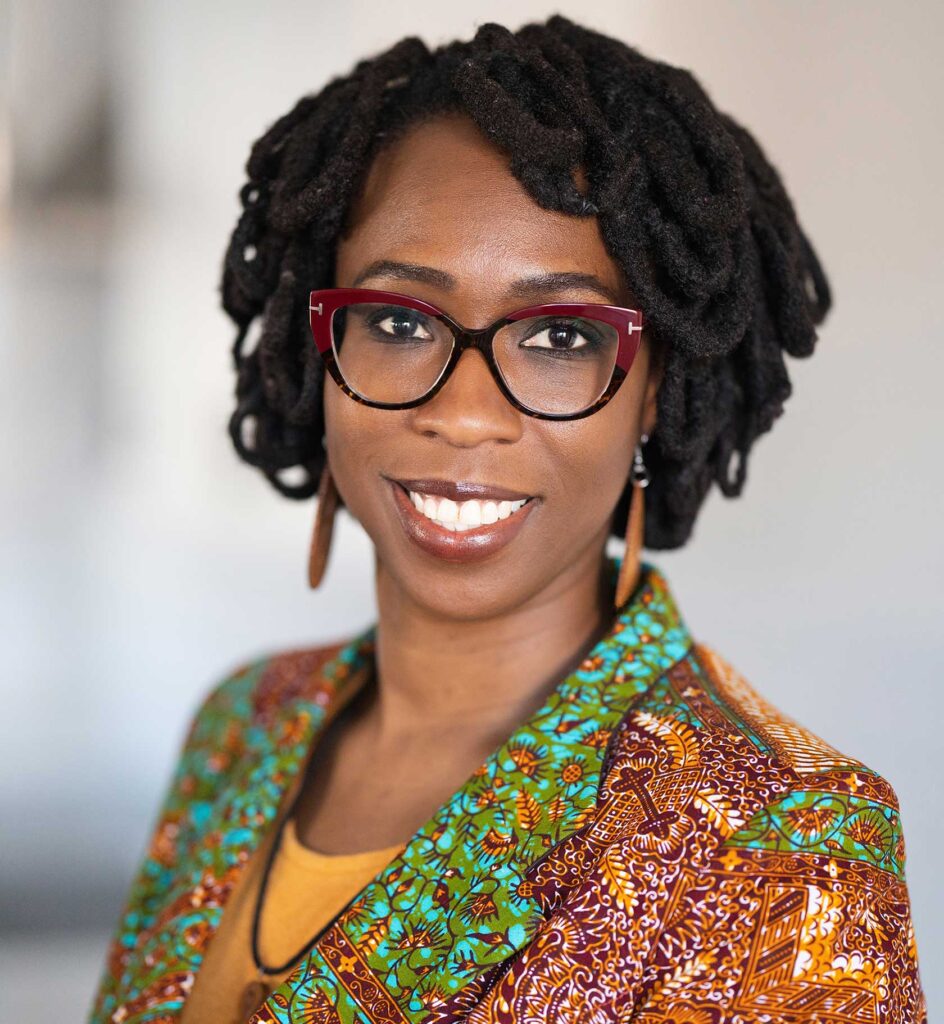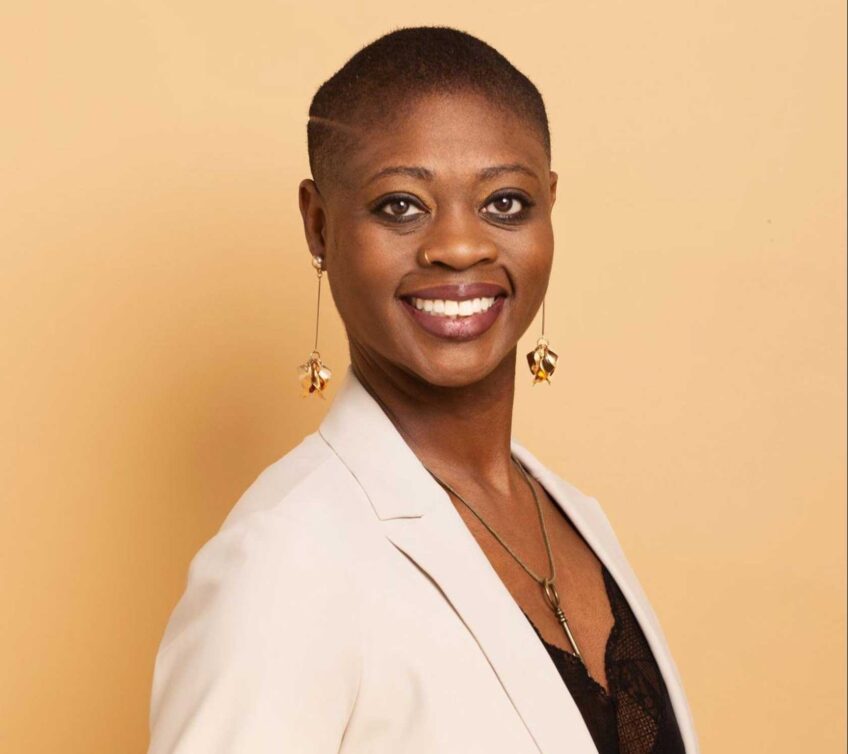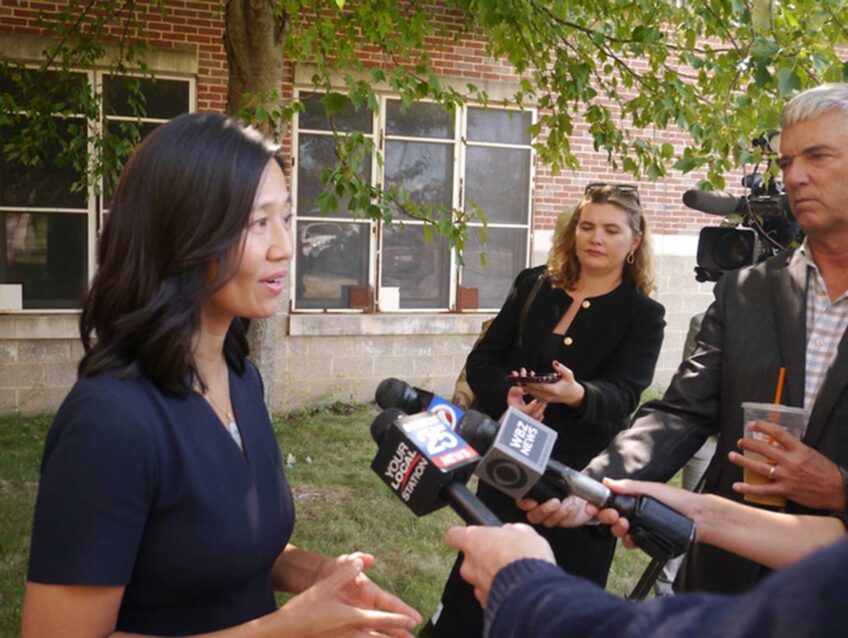
According to last Friday’s monthly U.S. jobs report, the unemployment rate reached 4.3%, the highest it has been since 2021.
It’s even worse for Black American labor. As reported by the U.S. Bureau of Labor Statistics, that national rate among Black or African American workers age 16 and over is currently 7.5%, and has hovered above a discouraging 6.2% since the beginning of 2025.
Furthermore, according to an examination of the situation for women workers of color conducted by Aba Taylor, president and CEO of YW Boston, the plight is gender-wide. Amid the restrictions (if not elimination) we have seen aimed at DEI programs across the country this year, there’s been an equally discouraging increase in layoffs among these female workers. What about here? The sad truth is that despite a collective effort by state and local lawmakers and political leaders to resist these dire federal impositions, Boston is not much different than the rest of the country for the Black workforce.
You may know YW Boston, which is located at 140 Clarendon Street in Boston, by its former name, the YWCA. But as of 2016, the CA was dropped to promote the nondenominational organization’s embrace of people of all faiths (in 2010, the YMCA similarly rebranded itself as “The Y.”).
With a stated mission to eliminate racism and empower women, this (un)employment trend is certainly quite concerning to YW Boston, as Taylor explained this week to the Banner.
“In July it was reported that 300,000 Black women had exited the workforce,” she said. “There is correlation with this startling statistic and the slashing of the federal workforce (either through layoffs, payouts or other means).” And since July it has only risen, currently to 320,000, as other populations have enjoyed more hiring.
“What’s even more shocking is that, according to gender economist Katica Roy and reported by The New York Times, while Black women lost 319,000 jobs between February and July of this year, 365,000 white men were added to the workforce, the largest increase of any group,” Taylor said, noting that other groups that saw an increase in this same time period were Hispanic women (178,000) and white women (142,000).
Only a minimal 22,000 nonfarm jobs were added nationwide. But the disparity between the national unemployment rate and that of Black workers — nearly double — is both disturbing, and increasing. “This is a big jump from June 2025, when the unemployment rate for Black folks was 6.8 percent,” Taylor noted. “This current unemployment rate for Black workers is the highest it’s been since October 2021.”
How did YW measure and arrive at this determination? Taking note of the grim figures in July’s Labor Bureau report and media coverage of Black women in the workforce, YW Boston followed media figures including Roy, Economic Policy Expert and Racial Equity Advocate Jessica Fulton, BlackWomenThriving.com founder Ericka Haines, media outlets such as The 19th (named for the 19th Amendment) and other major news sources.
“We understand, and as it’s been cited, Black women are overrepresented in frontline jobs and the federal workforce, and so they would naturally be disproportionately impacted by past DOGE [Department of Government
Efficiency] cuts and insidious attacks on diversity, equity and inclusion [DEI] efforts,” Taylor said. As she agrees that systemic racism is a factor in the high job loss rates among Black women, she also wonders about the current administration’s immigration policies.
“Oftentimes, immigration issues in this country are assumed to be primarily related to Latino communities, but here in Boston we know all too well how these policies are affecting Black communities, and therefore Black women as well,” she said, pointing to the high-profile detainment of Paul Dama, manager of the popular Suya Joint restaurant in Roxbury.
What is YW Boston doing to specifically counter the downward trend of layoffs and unemployment among Black female workers? In July, YW Boston held a webinar on “Black Women’s Mental Health in the Workplace.” Next month, the “State of Women of Color in the Workplace” will be explored. “This may include hot-off-the-press data and research findings from our organizational partners such the Boston Women’s Fund and the Women’s Workforce Council pay equity report,” Taylor said.
Two weeks ago, YW Boston launched the Massachusetts Alliance for Equity. “It’s a cross-sector collaborative which aims to defend, uphold and advance very legal, very necessary diversity, equity and inclusion efforts across the state,” Taylor said. And next month, YW Boston will host an advocacy training for women of color to uplift their civic and political strength. “We are currently in the process of designing a women of color advisory council, akin to a community brain trust that can also guide our strategies,” Taylor said.
Plans are also in the works for YW Boston to complete its strategic plan, which will include more programs and initiatives to support women of color. “This will include a women-of-color leadership program similar to our flagship LeadBoston program that we will roll out in 2026, and other capacity-building efforts,” she added. A key focus will be economic empowerment, which might include partnerships with like-minded workforce development organizations and incorporating a Boston-centered version of the nationwide YWCA Women’s Empowerment 360°, or YW WE360°.
Has YW programming resulted in positive indications for the future of Black female workers? “Although we have seen a damaging decline to the demand for our diversity, equity and inclusion services, namely in consulting and training, we applaud the clients and organizational partners that are staying the course and are unwavering in their commitments to build and maintain equitable workplaces where everyone has the opportunity to succeed,” Taylor said. “I am extremely proud of and excited by the work of our F.Y.R.E. [Fierce Youth Reimagining Excellence] program that truly uplifts and centers the voices and experiences of girls and gender expansive youth of color,” she continued. “While these young people may not yet be part of the workforce right now, they are and will be contributing members of society, and the work we do with them here and now can have a lasting impact in the future.”
Taylor added that YW Boston’s LeadBoston work “continues to be deeply impactful, and for some even life-changing, shaping the experience and motivations of leaders and decision-makers of all races and genders, throughout all sectors in Boston.”
Taylor’s own journey has been marked by determination, and success. A Boston native, she was raised as the only daughter of immigrant parents from Ghana. As a young Black woman, she traveled widely and lived and worked in Africa, Asia, Europe, Latin America and the Caribbean. She’s been involved in social justice work for 25 years as an educator, facilitator, organizer, consultant, nonprofit executive and board member. A born leader, she’s held major positions in mission-driven institutions that aim to elevate BlPOC communities, women and girls, immigrants, LGBTQ+ and other disadvantaged groups.
Taylor has worked internationally at the United Nations, where she advocated against gender-based violence and advanced civil rights, diversity and inclusion initiatives and held leadership positions at the Interaction Institute for Social Change. In the Boston area, she has served as executive director of a Greater Boston Community Foundation and was executive director of the Network for Social Justice, chair of the Massachusetts Human Rights Coalition and deputy executive director of the Astraea Foundation for Justice. She’s been a board member of Class Action, the Audre Lorde Project and Community Change, Inc., a Boston-based, 57-year-old anti-racist organizing nonprofit and is board president of Neighborhood Schools, Inc.
Taylor holds a bachelor of arts degree from Columbia University and a master of arts degree in nonprofit leadership and management from the School of International Training. A Rockwood Leadership Institute alumnus and certified trainer with Quabbin Mediation, her writing has been featured in The African magazine, Q-Zine and The Boston Globe.
It’s also interesting to note the historic progression of the YWCA, which began on March 3, 1866, when 30 women met at the Boston home of civic reform activist Pauline Durant to adopt a constitution that would reflect their stated mission: “The temporal, moral, and religious welfare of young women who are dependent upon their own exertions for support.”
At this meeting the acronym YWCA was first used. “Today, there are 194 YWCAs around the country, all of which comprise the federated YWCA USA,” Taylor said, adding that World YWCA operates in 120 countries. Over the years, the Association evolved to champion the advancement of women of all races and social strata. The organization has long advocated for the concepts of racial justice and social equality.
This objective became more pronounced in the pivotal Civil Rights Movement year of 1968 when during its 25th national convention, YWCA USA passed what is called the One Imperative: “the elimination of racism wherever it exists and by any means necessary.” That’s some powerful language and an ambitious goal we’ve yet to reach in our world – but YWCA pushed on, in 1993 developing the Youth Voice Collaborative after-school and summer program to engage more than 800 urban students every year to study social justice concepts, particularly focusing on race and gender. That same year, the Women’s Health and Wellness Program increased health care access and literacy for underserved women in Boston neighborhoods. The Academy of Women Achievers, created in 1995, has sought to recognize and celebrate community leaders and achievers.
In 2009, amid a concerning increase of racial and ethnic crimes in Boston, the YWCA incorporated the volunteer-led City Wide Dialogues on Boston’s Racial and Ethnic Dialogues and its subsidiary Youth/Police Dialogues Program. The year 2011 saw the formation of the social justice and leadership development initiatives LeadBoston and InIt (now F.Y.R.E.).
YW continues to help empower women and address racial and social justice. “Our work in Boston creates transformative change for women and people of color through leadership development, organizational development, youth development and advocacy,” its website states.
Taylor is an ideal leader to help steer the storied Association through current challenges in the workplace and indeed all sectors, helping women of color to continue to achieve and advance — no matter the times.





Leave a Reply
You must be logged in to post a comment.